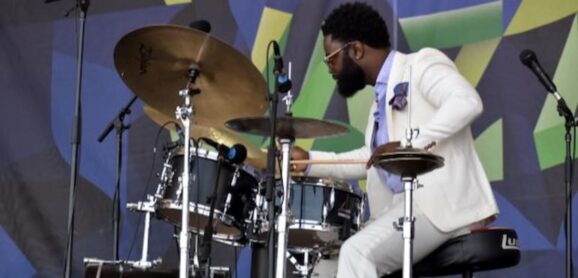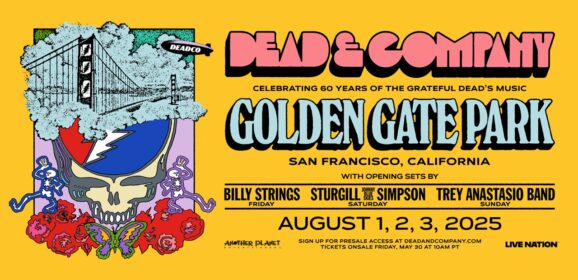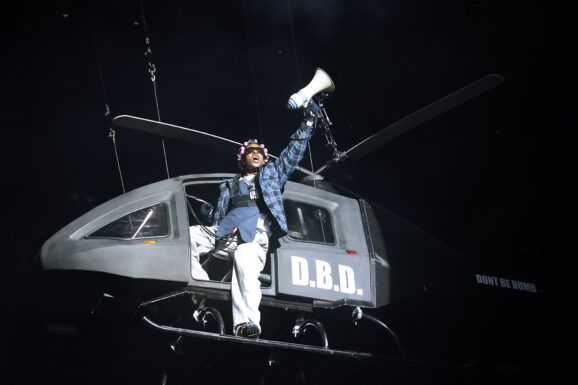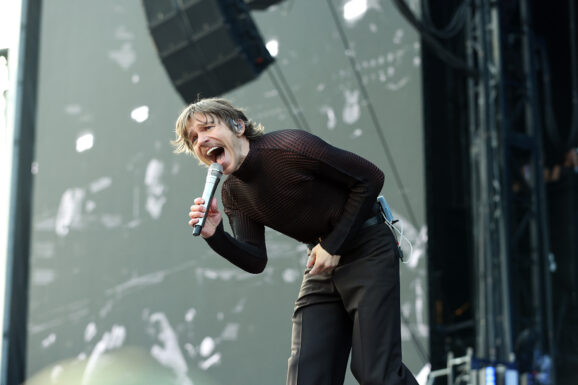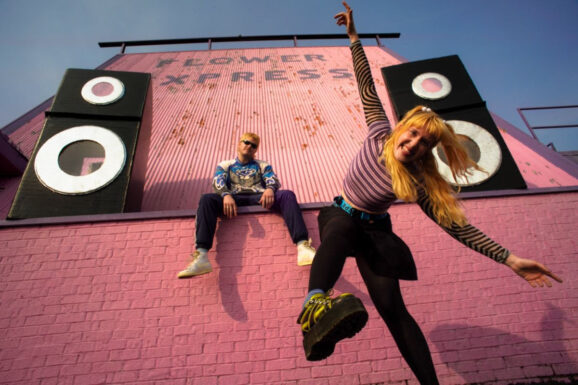Welcome back, James McMurtry. It’s been four years since 2021’s The Horses and The Hounds. We’ve missed his wit, political insights, and unparalleled storytelling. These new songs on The Black Dog and The Wandering Boy are memories from his family’s past, an old poem by a family friend, confronting old age, outlaw sagas, and both blatant and well-disguised political rants. Well, that’s just some of it.
His perspective on songwriting is interesting, as he quips, “A song can come from anywhere, but the main inspiration is fear. Specifically, fear of irrelevance.” That’s not to say McMurtry hibernated for four years. He’s been actively touring, but now he has a fresh batch of songs and an old friend, Don Dixon, producing. Dixon produced McMurtry’s third album, 1995’s Where’d You Hide the Body. Much is made in the promotional materials about the aggregation of guests: Sarah Jarosz, Charlie Sexton, Bonnie Whitmore, Bukka Allen, and others, but their contributions are mostly subtle. McMurtry and his core band of guitarist Tim Holt, bassist Cornbread, drummer Daren Hess, and harmony vocalist BettySoo do most of the heavy lifting. McMurtry is, for whatever reason, a vastly underrated guitarist and vocalist, yet he shines on both accounts in these ten songs, all but two of which he wrote.
The opener, “Laredo (Small Dark Something)” is penned by pal, Jon Dee Graham, a junkie’s lament that most would think McMurty wrote, given lines like “living in a motel named ‘MOTEL’ out on Refinery Road.” It’s a scorching rocker that evokes McMurtry’s own Levelland or Too Long in the Wasteland. “South Texas Lawman” paints the kind of precise character sketch that is trademark McMurtry with a chorus of “I can’t stand getting old, it don’t fit me,” only to have the protagonist make the ultimate surrender. “The Color of Night”, with burning guitar from Holt, tells the harrowing tale of a fight that left the protagonist struggling to find his senses, with a chorus that equates the color of night to a 60-watt bulb on a cinder block wall.
He takes on the theme of aging again in “Pinocchio in Vegas,” accompanied by Jarosz’s banjo and harmonies with the cinching line. “...He’s had to learn to be an asshole/just like everybody else.” In this sad portrayal, he still manages to make the listener laugh. The title track owes to his stepmother, Faye, who relayed to McMurtry that his dad’s favorite dementia-induced hallucinations involved the black dog and the wandering boy.
Another of McMurtry’s hallmarks is his non-preachy, read-into-it-what-you-will protest songs. “Second Sons of Second Sons’ on one level pays tribute to forgotten laborers often overlooked in history books. Yet, this last verse, to these ears, speaks to the cult worship of a certain electorate – “Sons of the second sons, products of genocide/Polishing up our guns, living in double wides/Sons of the peasantry, telling ourselves we’re free/Sons of the pagan serfs/Salt of the fucking earth, in search of Ceasar.” Another hard-hitting political rant is found in “Annie” where McMurtry takes a few shots at the “younger Bush,” suggesting he was in over his head, especially during the Trade Center bombing.
There are a couple of lighter songs. The lyrics to “Back to Coeur d’Alene” compare the life of a working musician to upstarts in Hollywood, unable to find a director, each in the quest to gain recognition. In the standout, “Sailing Away’ he and his band are lost near the Pentagon, trying to get to load-in in a club in Alexandria, name-checking headliner Jason Isbell, going on to paint how difficult it is to acclimate once off the road. He bookends the album with another cover, “Broken Freedom Song,” from his idol Kris Kristofferson, whom he began listening to as a youngster. It’s fair to say more than a few lessons sank in.


